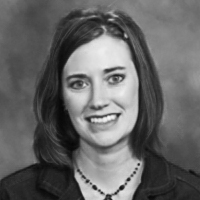Question
My 3 year old son was recently diagnosed with a cleft palate. What can we expect for him in the near future regarding speech, language, and treatment? Is he too old to attempt repairing the cleft?
Answer
I am sure having a diagnosis of cleft palate is not what you hoped for when you went to the assessment but let me assure you, you will be relieved to know there is plenty that can be done to help your son. I can only assume that because the diagnosis is only being made at 3 years of age that your son's diagnoses was a submucous cleft. Often a submucous cleft can be "missed" until a child is talking more and the speech appears hypernasal. If this is the case, having a repair at this time is very beneficial. The repair will allow your son the structure to learn to produce sounds both orally and nasally instead of always nasally as he is now.
If I am wrong, and your son has an open palate at 3 years of age, repairing the palate now would still be very beneficial. Generally, palates are repaired somewhere between 6 mos and 15 mos of age (mostly dependent on the surgeon and center your child is being treated at). As a SLP, I like to see palate repairs completed earlier rather than later to allow for as typical a line of development as possible. I believe that some of your child's speech patterns may result because of "habit" and he doing what was typical for him with the structure and system he currently had available to him.
Speech therapy will begin to address the issues of placement for sound production (articulation) and goals to help your child be able to direct the air where it needs to be directed to obtain accurate resonance skills. Initially, therapy focuses on these issues to make your child's speech easier to understand and to reduce any frustration he may have in communicating. In addition, the SLP will focus on improving his "language" skills to improve his vocabulary, the number of words he is stringing together to make sentences, and many concepts such as categorization, using pronouns, and following directions. These are just ideas and certainly not a complete listing of what might happen in therapy.
Children progress in therapy with both the amount of treatment available AND the amount of time you dedicate to helping your son practice the skills being targeted in therapy. A child with a cleft may need more involvement in therapy and contact with a SLP than a child who did not have a cleft but does have a speech or language disorder. The opposite can be true also though. Best bet, is to anticipate some treatment will be necessary and then find a reputable therapist who has worked with a child with a clefting disorder previously.
I wish you the best in working with your son to improve his communication skills.
Lesley Magnus received her Bachelor of Science in Education from Minot State University in 1985. She completed her Master of Science in Speech-Language Pathology from Minot State University in 1986. After 15 years of clinical work in Pediatric SLP, Dr. Magnus returned to Wichita State University to complete her Doctor of Philosophy in Communication Disorders and Sciences in 2000. Her doctoral dissertation focused on phonological aspects of children born with Clefting anomalies. Magnus is a certified SLP in both Canada and the USA. In addition, she is past president of the Saskatchewan Association of Speech Language Pathologists and Audiologists. Magnus' professional interests and work lie in the areas of phonology, clefting, and language disorders in children.

